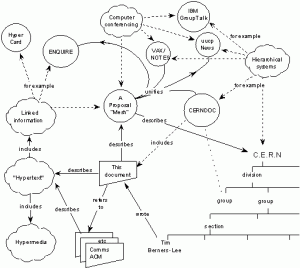The winners include Chimamanda Ngozi Adichie’s audacious novel “Americanah†(Alfred A. Knopf), a love story, immigrant’s tale and acute snapshot of our times; and Sheri Fink’s “Five Days at Memorial: Life and Death in a Storm-Ravaged Hospital†(Crown), an extraordinary reconstruction of the chaotic days following Hurricane Katrina.
Frank Bidart was awarded the poetry prize for “Metaphysical Dog†(Farrar, Straus & Giroux), which continues his life-long exploration of the big questions. The criticism award was presented to Franco Moretti for “Distant Reading†(Verso), which proposes boldly unorthodox methods for studying literature.
Amy Wilentz’s “Farewell, Fred Voodoo: A Letter From Haiti†(Simon & Schuster) was given the prize in autobiography; it is a gritty, surprising memoir based on years of reporting from Haiti. The biography prize went to Leo Damrosch for “Jonathan Swift: His Life and His World†(Yale University Press), a spellbinding life of a complicated, contradictory subject.
Anthony Marra’s novel “A Constellation of Vital Phenomena†(Hogarth) was the debut recipient of the John Leonard Prize, established in 2013 to recognize an outstanding first book in any genre. Named to honor the memory of founding NBCC member John Leonard, the prize is uniquely decided by a direct vote of the organization’s nearly 600 members nationwide, whereas the traditional awards are nominated and chosen by the elected 24-member board of directors. The Leonard Prize carries with it a $500 cash prize, generously donated by longtime NBCC member Linda Wolfe.
The recipient of the 2013 Nona Balakian Citation for Excellence in Reviewing was Katherine A. Powers, contributor to many national book review sections, including the Boston Globe, the Washington Post and the Barnes and Noble Review. She lives in Cambridge, Massachusetts, and is the editor of “Suitable Accommodations: An Autobiographical Story of Family Life: The Letters of J. F. Powers, 1942–1963.†For the second time in its 27-year history, the Balakian Citation carries with it a $1,000 cash prize, generously endowed by NBCC board member Gregg Barrios.
The recipient of the Ivan Sandrof Lifetime Achievement Award was Rolando Hinojosa-Smith. At 84, Hinojosa-Smith is the dean of Chicano authors, best known for his ambitious Klail City Death Trip cycle of novels. He is also an accomplished translator and essayist, as well as a mentor and inspiration to several generations of writers. A recipient of the 1976 Premio Casa de las Americas, Hinojosa-Smith is professor of literature at the University of Texas, Austin, where he has taught for nearly three decades.
Monthly Archives: March 2014
World Wide Web Timeline
Since its founding in 1989, the World Wide Web has touched the lives of billions of people around the world and fundamentally changed how we connect with others, the nature of our work, how we discover and share news and new ideas, how we entertain ourselves and how communities form and function.
The timeline below is the beginning of an effort to capture both the major milestones and small moments that have shaped the Web since 1989.
World Wide Web Timeline | Pew Research Center’s Internet & American Life Project.
March Book Display
How nonsense papers ended up in respected scientific journals.
Caption: Nobel winner Peter Higgs says that today, he wouldn’t be “productive enough” to land an academic job.
In 2005, a group of MIT graduate students decided to goof off in a very MIT graduate student way: They created a program called SCIgen that randomly generated fake scientific papers. Thanks to SCIgen, for the last several years, computer-written gobbledygook has been routinely published in scientific journals and conference proceedings.
According to Nature News, Cyril Labbé, a French computer scientist, recently informed Springer and the IEEE, two major scientific publishers, that between them, they had published more than 120 algorithmically-generated articles. In 2012, Labbé had told the IEEE of another batch of 85 fake articles. He’s been playing with SCIgen for a few years—in 2010 a fake researcher he created, Ike Antkare, briefly became the 21st most highly cited scientist in Google Scholar’s database.
How nonsense papers ended up in respected scientific journals..





